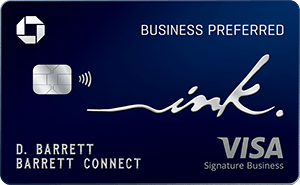In a Nutshell
Your credit cards may offer rental car protection as a free benefit. Find out how the coverage works, and you might be able to save money on your next trip.Want to save money on your next vacation?
Consider declining the rental car agency’s collision damage waiver (CDW) or loss damage waiver (LDW) to avoid the daily fee. Instead, use a credit card that offers similar protection for free.
Many credit cards — especially travel credit cards or rewards credit cards — include rental car protection as a free benefit to cardholders. However, the coverage, limits and policies can vary depending on your card. Understanding what’s covered and how the benefit works can help you make an informed decision the next time you step up to a rental car agency counter.
- Do you need insurance when renting a car?
- What might a credit card cover?
- What do you need to do to get rental car insurance from your credit card?
- The best credit cards for car rental insurance benefits
- How to make the most of your credit card car rental insurance
Do you need insurance when renting a car?
When renting a car, you’ll either need to carry a personal auto insurance policy or buy one from the car rental agency. The good news is you’re probably already covered.
Most states in the U.S. require you to have at least some liability coverage if you want to drive a vehicle. Liability coverage helps pay for others’ medical bills and damage to others’ vehicles and property. It can also help pay the fees to defend you during a lawsuit.
If you already have auto insurance, you might be covered when you rent.
“Unless expressly stated otherwise in the exclusions list on a policy contract, your auto insurance policy could follow you when you borrow or rent automobiles,” says Neil Richardson, a licensed insurance agent and adviser at auto insurance comparison website The Zebra.
However, he recommends you check your policy or call your insurance agent to verify your coverage. Richardson also adds, “keep in mind that a liability-only policy will not provide physical damage coverage for a rental car.”
In addition to liability coverage, rental car agencies may offer you several other types of protection. The names and coverage rules or limits may vary depending on the rental company, but in general, they fall into these three categories.
- Personal accident coverage — Generally covers medical bills and funeral costs for you and your passengers.
- Personal effects coverage — Generally covers theft of personal property during the rental period. In some cases, the coverage applies to thefts outside the rental vehicle, and it may include the personal property of others traveling with you.
- The CDW or LDW — Although technically not insurance, loss-damage waivers often get offered alongside insurance plans. The CDW or LDW typically covers theft and damage to the rental vehicle — provided the loss or damage was not the result of any prohibited use of the vehicle — similar to a personal policy’s collision and comprehensive coverage. The waiver also covers the rental company’s loss-of-use fees.
Your existing insurance could already cover you in many of these situations. For example, a renters or homeowners insurance policy might cover theft of your personal property, such as the items in your rental car.
Health insurance, auto insurance personal injury protection and life insurance could cover you during a medical emergency or help family members pay for expenses after a death.
If you have comprehensive and collision coverage on your auto insurance policy, your insurance may cover damage to or theft of a rental vehicle. However, Richardson says, “your personal auto policy, even one including comprehensive and collision, likely won’t cover any administrative or ‘loss of use’ fees you may be charged if you damage a rental vehicle.”
When there’s a gap in your insurance, or if you don’t have auto insurance, purchasing coverage from a rental agency could provide you extra protection. Some rental agencies may require you to show proof of insurance or purchase minimum protection from them, although minimum coverage is sometimes included with your rental rate.
Some travelers decide to buy liability insurance from the rental car agency for other reasons. For example, their primary policy’s limits may not be as high as they’d like while driving a rental car. Also, if you buy coverage from the rental agency, a claim might not affect your current insurance premiums.
What might a credit card cover?
Credit cards’ rental car protection may only extend to the CDW or LDW portion of coverage. The benefit helps reimburse you for damage to or theft of the rental car. In some cases, a credit card’s coverage will also pay for loss-of-use, administrative or towing fees incurred by the rental car agency.
What do you need to do to get rental car insurance from your credit card?
To receive credit card coverage for your rental car insurance, you may need to …
- Reserve and pay for the rental using the card
- Be the primary driver on the rental agreement (additional listed drivers may also be covered)
- Decline the rental agency’s CDW or LDW coverage
Check your card’s policy for other details, such as the maximum rental period (which may be around 30 consecutive days), limitations in different countries, which types of vehicles it covers and coverage limitations.
Also, check to see if your card offers secondary or primary coverage. According to Loretta Worters, vice president of media relations for the Insurance Information Institute, most credit cards offer secondary coverage.
This means you may need to file a claim with your insurance company first, and the credit card’s coverage may only reimburse you for claims that your primary insurance doesn’t cover, such as your deductible, administrative fees and costs that exceed your policy’s limit.
The best credit cards for car rental insurance benefits
Most consumer credit cards offer some form of rental car coverage as a benefit. However, Worters says that the benefits can vary widely depending on the issuer and the card, which is why it’s important to review your policy’s details. Below are a few of our picks for the best car rental insurance depending on your needs.
Note: Our selections for the best coverage focus on travel cards that offer primary coverage to let you file any claims directly with the credit card company rather than having to go through your personal auto insurance.
Best for renting a car internationally: Chase Sapphire Reserve®
Here’s why: The Chase Sapphire Reserve® provides primary insurance coverage for rental cars all around the world. That’s not always a given.
You may also appreciate that the Chase Sapphire Reserve® has a $0 foreign transaction fee while you’re traveling overseas.
On the rewards front, you can use the annual $300 travel credit to help pay for your rental car. After the $300 travel credit you’ll earn the following points on travel purchases:
- 10 points per $1 on car rentals and at hotels booked through Chase Travel℠
- 5 points per $1 on flights booked through Chase
- 3 points per $1 on other travel purchases
You’ll also earn …
- 10 points per $1 on Chase Dining purchases made through Chase
- 3 points per $1 on other dining purchases
- 1 point per $1 on all other purchases
But all of these rewards and perks will cost you — the card comes with a hefty $550 annual fee.
Check out more about the Chase Sapphire Reserve® to learn more.
Best for renting a car on long trips: Blue Cash Preferred® Card from American Express
Here’s why: The Blue Cash Preferred® Card from American Express could help you save on insurance on your next long road trip.
The card itself offers secondary coverage on car rentals for up to 30 consecutive days. But if you plan on traveling for more than a month, you can buy a separate rental car insurance policy from American Express. For as little as $12.25, you could purchase primary coverage for trips of up to 42 days.
With the Blue Cash Preferred® Card from American Express, you’ll also earn …
- 3% cash back on purchases at U.S. gas stations and transit
- 6% back at U.S. supermarkets on up to $6,000 per year in purchases (1% after that)
- 6% back on select U.S. streaming services
- 1% back on your other purchases
The Blue Cash Preferred® Card from American Express has an annual fee: $0 intro annual fee for the first year, then $95.
Read about the Blue Cash Preferred® Card from American Express to learn more. If you’re not eager to pay an annual fee, check out this card’s sibling, the Blue Cash Everyday® Card from American Express, which offers the same car rental insurance benefits.
Best for frequent travelers: Chase Sapphire Preferred® Card
Here’s why: The Chase Sapphire Preferred® Card provides primary coverage for car rental insurance and decent travel rewards.
You’ll receive …
- 5 points per $1 on travel booked through Chase Travel℠
- 5 points per $1 on Lyft rides through March 2025
- 3 points per $1 on dining, online grocery purchases and select streaming services
- 2 points per $1 on all other travel purchases
- 1 point per $1 on all other purchases
Plus it comes with travel insurance (like baggage-delay insurance, trip-cancellation insurance and trip-delay reimbursement) and no foreign transaction fees.
But you’ll have to weigh that against the card’s $95 annual fee.
To help you decide, learn more about the Chase Sapphire Preferred® Card.
Best for renting a car during a business trip: Ink Business Preferred® Credit Card
Here’s why: When you’re traveling for business, the Ink Business Preferred® Credit Card provides primary coverage for rental cars. This is a great way to cut costs on your next business trip.
And if your business trip turns into a personal vacation, the Ink Business Preferred® Credit Card still offers secondary coverage for rental cars.
Just know that it comes with a $95 annual fee.
Check out all the reasons why the Ink Business Preferred® Credit Card might be a good option for your next business trip.
How to make the most of your credit card car rental insurance
Here are a few practices to help you use credit card rental car insurance to its fullest.
- Pay for your rental car (in full) with the credit card that you plan to use for insurance. If you split the payment with another card, you might not be covered.
- Don’t double dip. Your credit card may require you to decline the car rental company’s collision-damage waiver for your card’s insurance coverage to kick in. Find out before you’re at the rental counter.
- Decide if you need to purchase separate liability insurance. Your credit card may cover damage to the rental car. But if you get into a car accident, the credit card issuer won’t necessarily pay for damage you cause to other vehicles involved in a collision or injuries sustained by people in those cars. Check your card’s terms to figure out what other coverage you might need.
- Find out if you’re already covered. Your auto policy may also cover your rental car. But if you file a claim, your premiums may go up. On the other hand, if your credit card offers primary coverage, you can avoid this by filing directly through your credit card company.
- Follow the rules. Your credit card probably won’t insure you if you don’t follow the rental agreement. This can include provisions that prohibit other drivers who aren’t listed on the rental agreement from getting behind the wheel, as well as coverage for intoxicated drivers.
If you follow these tips — and read your policy carefully — you should be in good shape the next time you rent a car.




